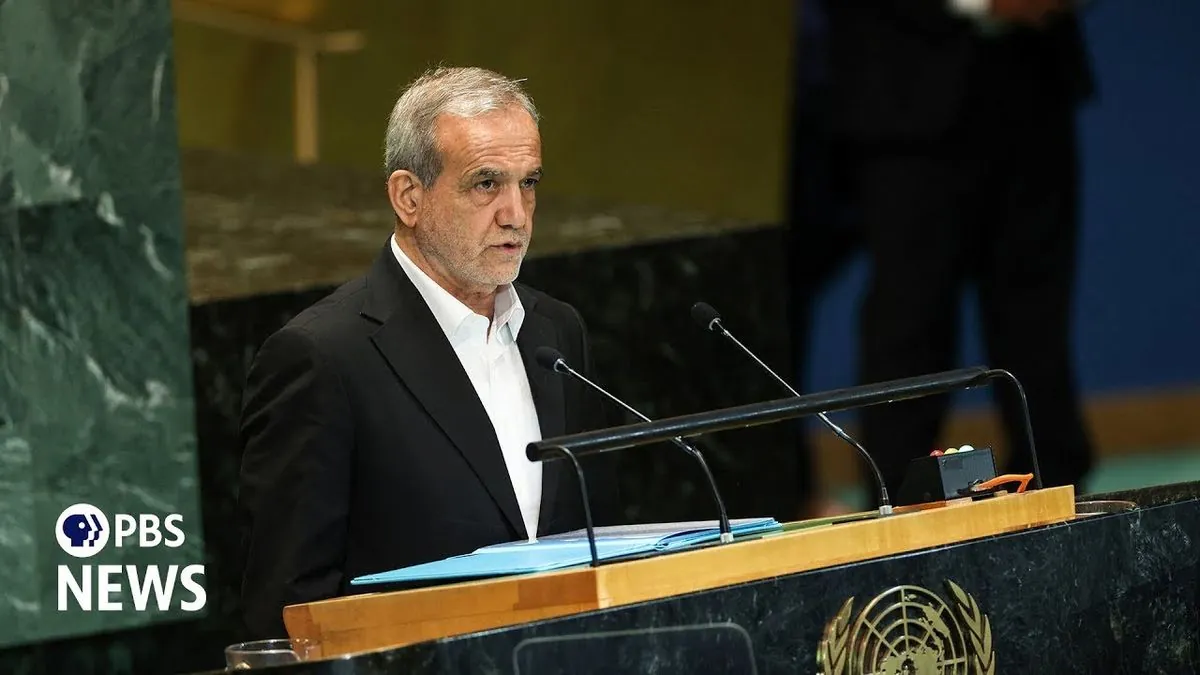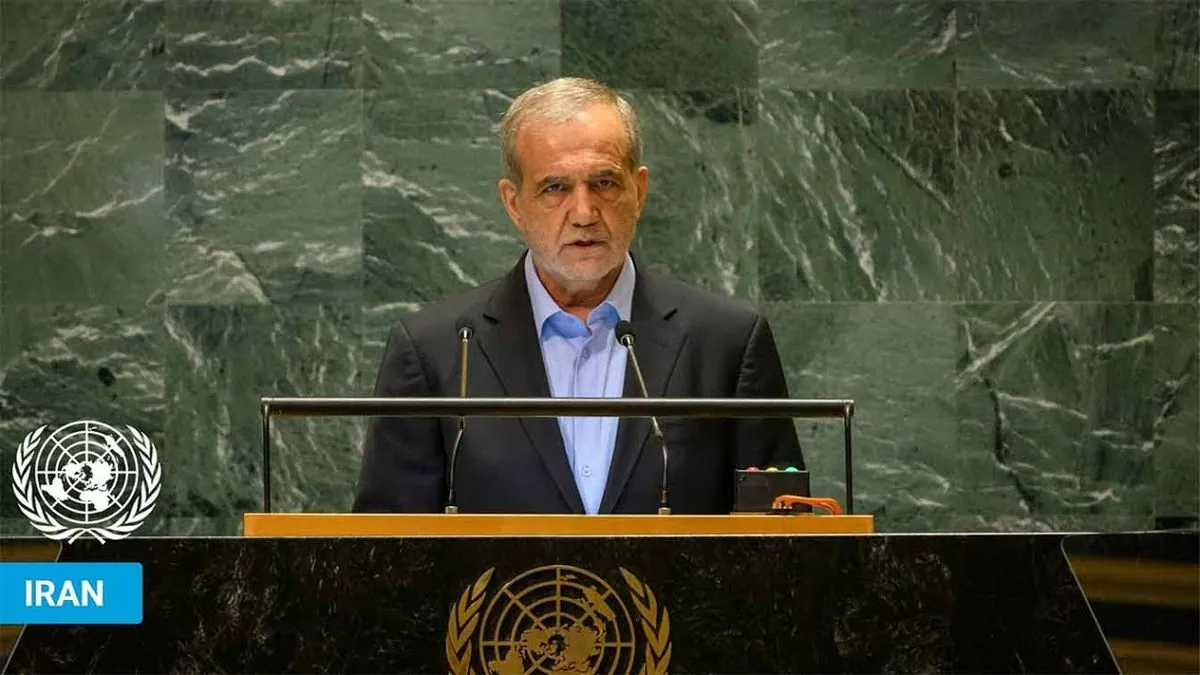Iran's New President Seeks 'Constructive' Role in Global Affairs
Iran's President Pezeshkian addresses UN, signaling desire for improved international relations while criticizing Israel. He calls for acknowledgment of Iran's concerns and mutual cooperation.

In a significant diplomatic move, Masoud Pezeshkian, Iran's recently elected president, addressed the United Nations General Assembly, expressing his intention to steer Iran towards a more constructive role in global affairs. This marks a potential shift in Iran's international relations, coming just two months after Pezeshkian assumed office in July 2024.
Pezeshkian, a heart surgeon with a reformist background, emphasized his goal to establish a strong foundation for Iran's participation in the evolving global order. This approach aligns with Iran's long-standing membership in the UN, dating back to 1945, and reflects the country's desire to engage more positively with the international community.
The president's address comes at a crucial time, as tensions persist in the Middle East due to ongoing conflicts. Pezeshkian criticized Israel's actions in Gaza and Lebanon, describing them as "atrocities" and "crimes against humanity." This stance underscores the complex relationships Iran maintains with its regional neighbors and its support for groups like Hamas and Hezbollah.

Despite the critical tone towards Israel, Pezeshkian's speech also hinted at potential diplomatic openings. He referenced recent statements by Ayatollah Ali Khamenei, Iran's Supreme Leader since 1989, who indicated a willingness to consider renewed negotiations with the United States regarding Iran's nuclear program. This development is particularly noteworthy given the US withdrawal from the Joint Comprehensive Plan of Action (JCPOA) in 2018, which had previously limited Iran's nuclear activities.
The president's call for acknowledging Iran's security concerns and fostering cooperation on mutual challenges suggests a desire to move beyond historical grievances. He mentioned specific issues, such as sanctions and the 2020 killing of Iranian General Qassem Soleimani, while appealing for a new era of engagement.
Iran's complex geopolitical position is further highlighted by its vast natural resources, including the world's second-largest natural gas reserves and fourth-largest proven oil reserves. These assets have been both a source of economic strength and a factor in international tensions, particularly regarding sanctions imposed following the 1979 Islamic Revolution.
Pezeshkian's address also touched upon Iran's rich cultural and scientific heritage. With a history dating back to the ancient Persian Empire, Iran has made significant contributions to fields such as medicine, literature, and poetry. This cultural backdrop provides context for Iran's aspirations on the global stage.
As Iran navigates its international relationships, it faces internal challenges as well. The country's young population, with a median age of about 32 years, represents both potential and pressure for economic and social development. Iran's ongoing space program and efforts to diversify its economy highlight its ambitions beyond traditional sectors.
The response to Pezeshkian's speech from the international community, particularly the United States and Israel, remains to be seen. As the world approaches the US presidential election in November 2024, the potential for significant shifts in diplomatic dynamics adds another layer of complexity to Iran's international relations.
"We have the opportunity to transcend these limitations and enter into a new era. This era will commence with the acknowledgement of Iran's security concerns and cooperation on mutual challenges."
In conclusion, Pezeshkian's UN address represents a potential turning point in Iran's approach to global affairs. While challenges remain, including regional conflicts and economic sanctions, the president's call for constructive engagement offers a glimpse of possible diplomatic avenues in the evolving international landscape.


































